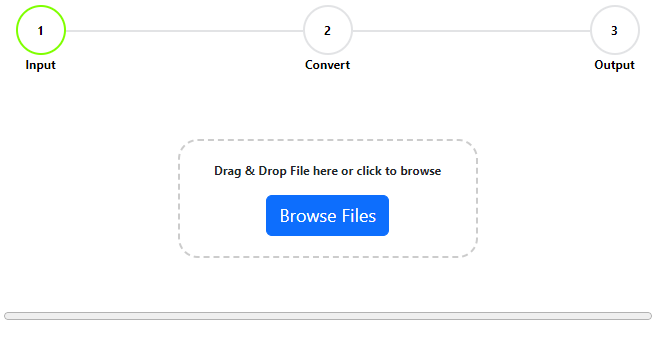What is a GIS or Geospatial Certification?
Don’t be mistaken, a certification is not the same as a certificate program. A certificate program is about teaching, whereas a certification involves an institution of professional body confirming your skill level and expertise.
Like any professional certification, a GIS certification proves that you have the knowledge, experience, and skills to perform a specific role or task. There are a number of avenues for you to become a certified GIS professional, but not all carry the same weight or reputation.
Geospatial Certification Options
Below is a brief comparison of the various geospatial certification options available today, how they are obtained, and the recertification process.
GIS Professional (GISP)
The GIS Professional, or GISP, is the most well-known of the certification options. Provided by the GIS Certification Institute (GISCI), the GISP shows employers and clients that you are a dedicated professional and advocate for the GIS community.
The cost of a GISP certification ranges from $450-550 (location dependent) for the initial certification. It is one of the more expensive certifications, but also the most highly regarded and well-known.
How to Acquire a GISP
Obtaining a GISP certification requires a few steps. First, you must curate and submit a portfolio detailing noteworthy projects, and contributions to the GIS profession. Naturally, this will include documentation attesting to your level of education (Bachelor’s degree, masters etc.). Contributions to the industry can include professional society membership, participating in educational events or volunteer work.
You’ll also have to sign and agree to an ethics standard. Any complaints made against you or your work ethics will be investigated by a panel. This is key to the certification maintaining its reputation.
Finally, there is an exam to complete. The exam has been designed in a generalized way, for someone with at least four years professional GIS experience. You do not need to have a specific skillset, or know how to use a particular software. The institute provides an exam blueprint, and a practice exam to make use of in advance. This gives you an idea of the style of questions and what areas to study before the exam.
Renewing Your GISP
Recertification is done every three years and you have to submit another portfolio. The portfolio just needs to show the things you’ve achieved or worked on in the last three years. Currently you do not have to sit the exam again.
Want to know more about the GISP certification directly from the expert? Check out our podcast episode, where we have a chat with Tony Spicci, the executive director at GISCI.
American Society for Photogrammetry and Remote Sensing (ASPRS) Certification
The purpose of the certification program is to confirm a high standard of knowledge in photogrammetry and mapping sciences, as well as to motivate continued learning and career progression. The society also has a framework for assessing complaints made against practicing scientists regarding their code of conduct, and professional standards.
ASPRS offer two levels of certification, Scientist and Technologist level. Within the two levels there are different specialties, for example, certified photogrammetrist, remote sensing, LiDAR, GIS/LIS or UAS.
The cost of initial certification with ASPRS varies by the different levels, and whether or not you’re already a member of the society. Generally, you’re looking at between $200-450 for the initial certification.
Scientist Level
The scientist level is designed for someone at a more advanced stage in their career. A prerequisite for the scientist level certification is six years of professional experience in total. This needs to be made up of three years in photogrammetry, and another three in the specialty area of choice. The applicant will need to sit for a written exam, sign a declaration to abide by the ASPRS code of ethics, and provide details of four references.
Technologist Level
The requirements for the technologist level certification are very similar to that of the scientist level. This certification, however, is designed for people at an earlier stage in their career, and does not require as many years of work experience. You’ll still need to sign an agreement for the code of ethics, provide four references, and sit an exam, but you only need to demonstrate three years’ work experience in the industry. The three years of experience needs to include at least two years in your specialty field.
It’s important to note that both certification levels will accept educational credits in lieu of some on the job experience. For example, a Bachelor’s degree equates to ½ year on the job experience and a Masters another ½ year.
ASPRS Recertification
The timeframe for recertification depends on the level of certification. The scientist level requires recertification every five years and the technologist level requires recertification after three years. The process involves completing an application form detailing your professional activity in the past few years, as well as four references. An evaluation committee will assess all applications, and you can see the scoring system they will use to assess your application.
ESRI Certifications
ESRI is by and large the leading GIS software provider. If you use ESRI technology, then an ESRI certification can help you establish credibility and personal and presents professional development opportunities. Whether you’re currently job hunting or are already comfortable in your role, having one of these ESRI certifications could help you get to where you want to be, or help you land that dream job, or promotion.
Various Levels Available
There are a range of online certification exams you can complete through ESRI, with four levels available: Foundation, Associate, Professional and Specialty. You’ll find core exams directed towards proficiency in ArcGIS Pro, ArcGIS Online, or ArcGIS Enterprise. There are also specialty exams catering to niche skill sets or specific industries. For example, ArcGIS and Python or JavaScript, or using ArcGIS for the utility network.
Prices for the ESRI certifications range from $150 for the specialty certifications, to $250 for ArcGIS Pro, ArcGIS Online, or ArcGIS Enterprise certification. The other bonus is that these exams can be completed in an online format for those not in the US.
Other Online Providers
Massive Open Online Course’s (or MOOC’s) have revolutionized upskilling and the ability to access training. Online training providers like Edx, Esri, Udemy or Coursera offer a selection of short, and sometimes free, courses on a variety of topics. This sways into a ‘certificate program’ rather than a certification specifically. Nevertheless, if you need the paperwork to validate your expertise level, many of these sites offer very reputable courses that may help.
Final Thoughts
Certification processes are time consuming and there is no final word on whether the value is really there or not. Essentially, having a formal, recognized certification will get you noticed, and if that’s what it takes to beat other applicants to that high level job, it’s probably worthwhile. Additionally, if your employer is willing to pay for the certification, you have nothing to lose.
In comparing the different certifications. GISP is the most well-known (especially to those outside the GIS industry) and as such can add value, particularly in the private sector. Many people claim having the GISP has led to a pay rise, or higher positioning in job interviews, and therefore a great chance of scoring the job. The ASPRS is not well known, so a certification through them might not be as eye-catching to an employer or client or is unlikely to be on the list of job requirements. A certification through ESRI certainly holds weight and reputation, and is a much cheaper option. The ability to complete these entirely online and with minimal paperwork involved could also be an added benefit for many.





